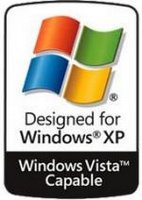 Microsoft Windows came into our lives introducing a revolutionary, user-friendly graphical user interface with the PC. From the start, Microsoft's goal was for every house to have a Windows PC. And they have succeeded in that using agressive marketing, disputed monopoly tactics, etc.
Microsoft Windows came into our lives introducing a revolutionary, user-friendly graphical user interface with the PC. From the start, Microsoft's goal was for every house to have a Windows PC. And they have succeeded in that using agressive marketing, disputed monopoly tactics, etc.Right now, they (Microsoft) hold a huge piece of the pie and therefore great power. At first, user-friendly ment a mouse, nice colors and a few tooltips. After that, users didn't want their OS to crash (randomly) causing them to lose their unsaved work. So system stability and reliability came into play. Up to that point (let's say Windows 2000) users and Microsoft agreed on what the one side needed and what the other side was offering.
By the time Windows XP was on the market, something changed. Security. What had happened was that the home-OS had made its way in corporate networks interconnected to the Internet. So a few skilled people (hackers) found out several flaws that allowed them to siege control of these networks. Effects? Denial of Service, Lost Information, Leaked Information, Millions of Dollars in loss. While the home user wanted a plug and play system, the company employee demanded an invulnerable system.
So the situation was like this: an operating system with insufficient design for today's standards, problematic to the advanced user and a security risk for who had something to insure. This enforced a change of policy (or if you prefer, took user-friendliness to the next level).
While, up to this point, the user had been the absolute administrator of his system, now, the operating system took the role of protecting the system even from the user's actions if those posed hazard.
Today we hear about various Vista features such us scalable user rights (no more admin accounts available), something Unix had since the beginning, global undelete, abstraction layers for system control etc. All these things may be well-intended but take the keyboard out the user's hands. That's ok if you're just a beginniner and, for that matter, find tooltips and wizards very smart and helpful. But if you know what you want to do and how you want to do it, there's a great change Windows won't let you. So the OS keeps the system secure, right? Wrong! What it does is preserve the system its own way. There may be an attempt to secure it but when the first flaw comes up (there'll always be flaws in the software) you'll be helpless waiting for Microsoft to release a patch. That's not the way I want to work. That's not the way you want to work either. Patching an OS again and again makes it less reliable and much slower. It's not a rare thing for a patch to create a new bug in the system. And all that is done "transparently" through "smart abstraction" which don't "worry" me with technical information. Well maybe I want to be worried when it comes to my own PC. Maybe I want to be kept on alert if there's a reason to.
Would you buy a house with an unknown, invisible, integrated alarm system? So why would you buy an OS which acts the same way? What is more, you have payed pretty expensively for that piece of software!
Bottomline is: Windows was a great idea. Something has gone wrong with the implementation and action must be taked so that we have another version five years from now.
No comments:
Post a Comment